Science-Backed Strategies That Turn Your Sleep Into A Superpower
Go beyond trendy basics with The Ultimate Sleep Optimization Course, led by world-renowned sleep expert Dr. Michael Breus (aka “The Sleep Doctor”).
This 11-module course allows you to personalize your sleep and make night the most powerful part of your day.
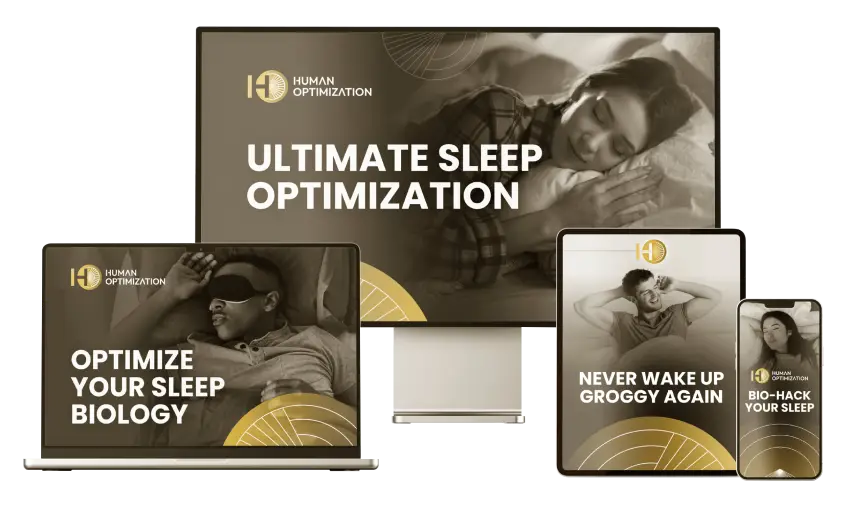
Do you have trouble falling asleep? Staying asleep?
Do you wake up at 3 AM with your mind racing?
78%
Of Americans said they wake up tired or very tired 1 to 3 days per week.
38%
Said they wake up tired more than 4 days per week.
51%
Of American teenagers say they feel tired and sleepy in school.
Sleep debt bankrupts your health
Poor sleep leads to chronic “sleep debt,” the physiological changes that occur when you routinely sleep less than your body needs.
Research shows sleep debt can lead to…
- Chronic fatigue, sluggishness, and loss of interest in activities you used to enjoy
- Increased risk of heart disease
- Greater chances of suicide, especially in those who struggle with mental health issues
- Escalated risk of Alzheimer’s and other forms of dementia
- Brain damage
- Greater risk for many forms of cancer
- More severe, frequent pain, such as joint pain, headaches, and migraines
- Weight gain, especially belly fat
- Metabolic syndrome
- Poor physical and mental performance
- Imbalanced levels of crucial hormones
These aren’t the same tired sleep solutions you’ve heard before
Did you know your biological clock is unique?
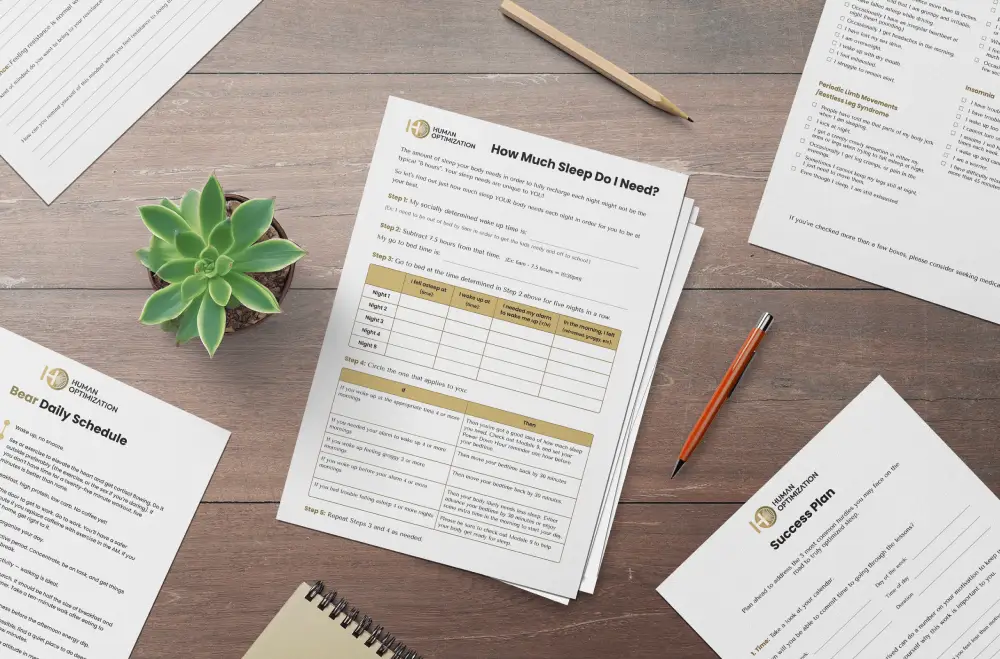
For successful sleep, you need guidance that’s customized to you.
The fact is, research is just beginning to uncover the many ways genetics influence your sleep schedule.
The big takeaway?
The generic sleep solutions you’ve read over and over won’t work for your bio-individual needs.
In The Ultimate Sleep Optimization Course, you’ll learn your specific sleep type, along with personalized lifestyle, supplement, and sleep plans for the most rejuvenating nights of your life!
- No more tossing and turning while your partner snoozes peacefully.
- No more seeing 3 AM on your alarm clock night after night.
- And, most importantly, no more yawning, afternoon energy dips, and unshakeable fatigue.
Meet Your Instructor
The Sleep Doctor
Michael Breus, Ph.D.
Dr. Michael Breus is a clinical psychologist, diplomate of the American Board of Sleep Medicine, and fellow of The American Academy of Sleep Medicine.
He was one of the youngest people to pass the board at age 31, and with a specialty in Sleep Disorders, he’s one of only 163 psychologists in the world with these credentials.
In The Ultimate Sleep Optimization Course, he’s applied 17 years of clinical experience along with rigorously tested scientific techniques for better sleep.

Each module includes sections that are easy to digest and implement—the goal is not to interrupt your entire evening but to go with your flow so you get better quality sleep and a healthier, more joyful life.
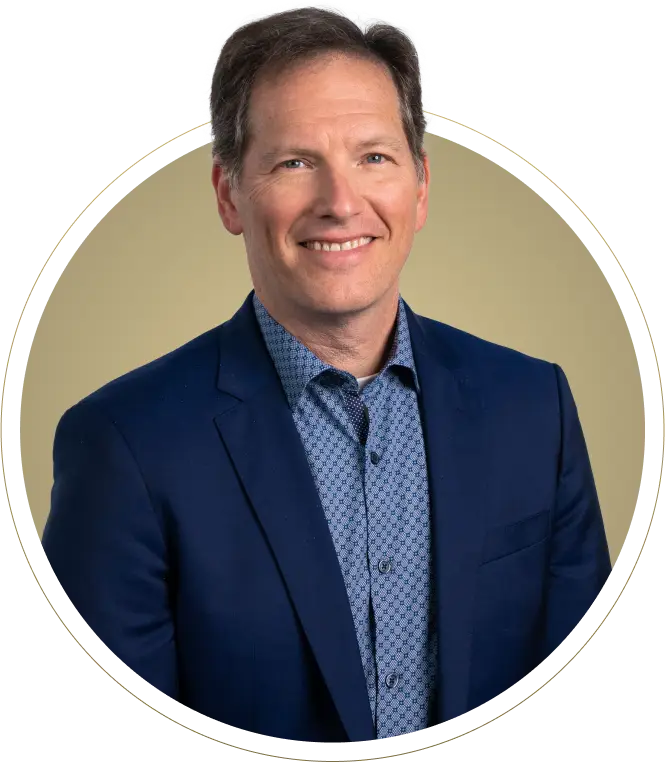
After The Ultimate Sleep Optimization Course, you’ll be able to…
Access The Energy (And Health!) Of Your Dreams
Sleep issues cause fatigue in multiple ways.
Yes, you’re tired because you aren’t sleeping properly…
But did you know your immune, cardiovascular, endocrine, and nervous systems are taking a hit, too?
The impact of disrupted sleep leads to fatigue that’s more than just afternoon sluggishness
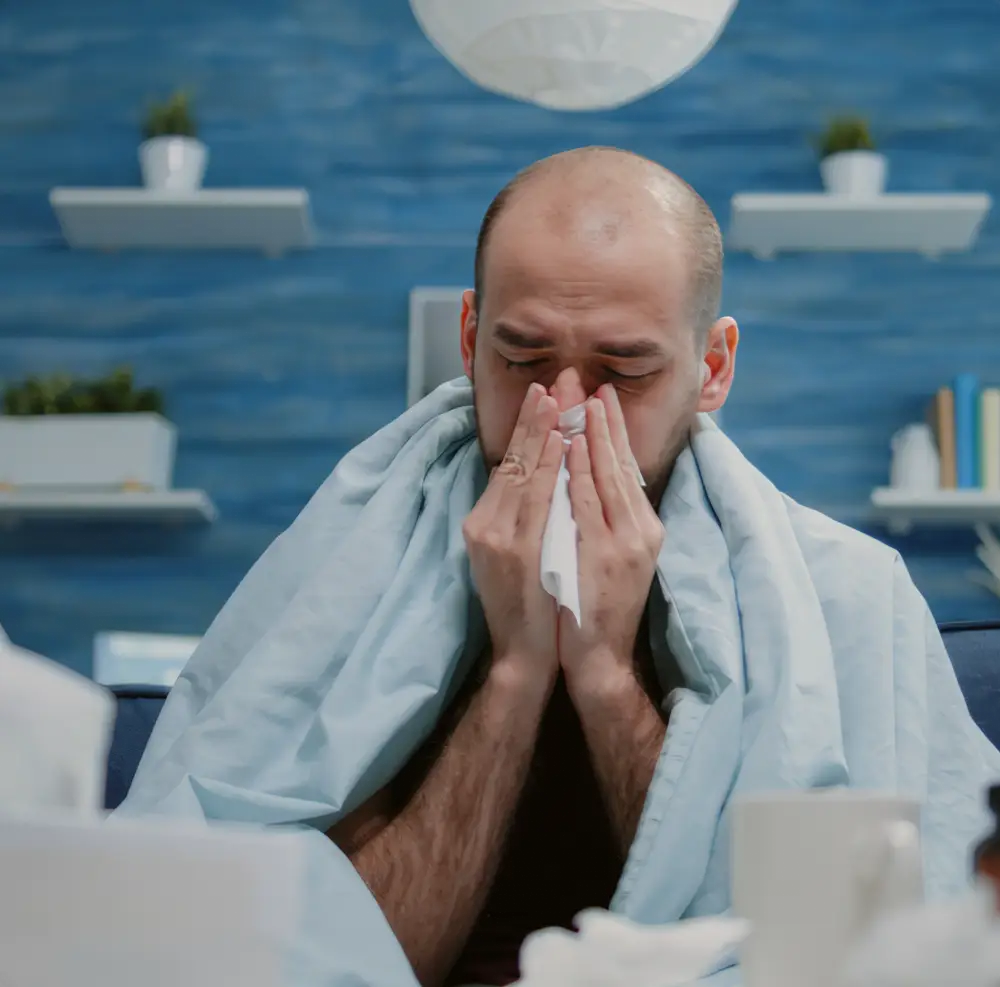
Heart disease

Viral overload

Dementia and Alzheimer’s

Cancer
In a recent study exploring the links between sleep and cancer risk, researchers found that the risk of incident cancer increased by 69% in those that slept less than 7 hours per night. [4]
Another review that combined the statistical findings of over 25 studies found that short sleep duration may increase cancer risk in certain populations, while sleeping for too long might heighten the risk for colorectal cancer by approximately 20%. [5]

”Sleep has been described as being of the brain, by the brain, and for the brain." [6]
- “Sleep disturbance in mental health problems and neurodegenerative disease,” Nature and Science of Sleep Journal
Lower Your Blood Sugar & Slim Your Waistline

“...chronic sleep loss… may represent a novel risk factor for weight gain, insulin resistance, and Type 2 diabetes.” [8]
– “Sleep loss: a novel risk factor for insulin resistance and Type 2 diabetes,” Journal of Applied Physiology
Elevate Your Mood

Say Goodnight To Chronic Pain

Aging, autoimmune disease, or hidden food sensitivities might not be the causes of your chronic pain.
Low-quality sleep leads to increased pain sensitivity, lower pain tolerance, and worsening of muscle pain, joint pain, and headaches.
For years, scientists have understood the cyclical relationship between sleep and pain; poor sleep can lead to worse pain, and pain can keep you from getting good sleep!
But research now shows that insufficient sleep, not pain, is the primary driver of the relationship between pain and sleep. [10]
In fact, people with chronic pain are 18 times more likely to meet the criteria for insomnia… and this lack of sleep is the most obvious driver of their life-altering condition. [11]
Recover Your Mental Focus, Memory, And Productivity
Even partial sleep deprivation can weaken cognitive performance, along with impairing attention, judgment, memory, and decision-making.
Good sleep is non-negotiable if you have big goals at work, the gym, or to show up for your family.
A study of over 500 people found that those with sleep disorders had 40% greater workplace productivity losses compared to those on a healthy sleep schedule. This equaled over 130 lost hours per year! [12]

Poor sleep speeds up cellular aging
It’s called beauty sleep for a reason!
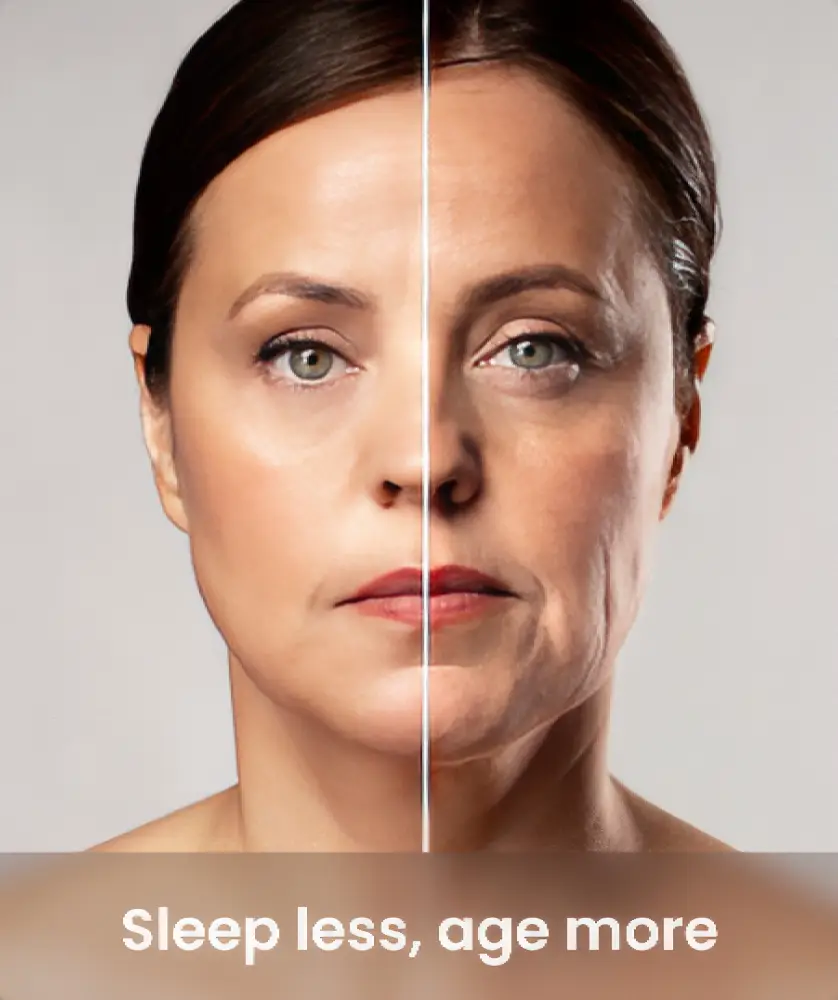
Research shows that low-quality or lack of sleep shortens telomeres and alters mitochondria—without proper rest, your mitochondria can’t perform at top capacity and even suffer injury and loss of function. [13. 14, 15]
This speeds up cellular aging that can lead to dementia, metabolic syndrome, muscle loss, cardiovascular disease, cancer, and every other chronic, debilitating condition.

The Ultimate Sleep Optimization Course provides
easy-to-incorporate ways to stop subpar sleep, protect your mitochondria, and turn back the clock on cellular aging. Sleeping more deeply is one of the most effective and foundational strategies for slowing the rate of aging.
Look inside The Ultimate Sleep Optimization Course’s most powerful modules…

- Discover the Foundations of Sleep, including the surprising answer to how sleep actually works
- How Much Sleep Do You Really Need? (8 hours per night isn’t as accurate as you think)
- What’s Your Unique Sleep Chronotype? Use the included intakes to uncover your genetically determined sleep patterns
- How Your Senses Influence Sleep…yes, including smell!
- Welcome To Your Bedroom Makeover, where we go far beyond blackout shades and a comfy mattress
- Optimize Your Sleep Biology With Individualized Supplements, science, and Dr. Breus’ decades of clinical experience to identify the best nutrients for restful nights
- Plan Your Days & Nights By Your Sleep Chronotype, with access to individualized schedules for sleep, exercise, work, and even the best time for sex!
- Learn About The Power Down Hour, the new nightly practice that you’ll look forward to every afternoon
- Never Wake Up Groggy Again by matching your morning routine to your specific sleep pattern
- Customized Sleep Quality Optimization Protocols that are different for each genetic chronotype
- Bio-Hack Your Sleep with the best foods, supplements, and sleep practices for your bio-individual rhythm!

Plus... intakes, quizzes, & specialized resources so you can customize the course to your sleep needs!
- How Much Sleep Do I Need Intake
- What’s My ChronoType Quiz
- Sleep Disorders Symptom Checklist
- Optimize Your Sleep Personalized Tracker
- Bedroom Assessment Intake
- Customized Sleep Optimization Success Plans
- The Sleep Doctor’s Guide to Sleep Supplements Guide
- The Effects of Psychotropic and Neurotropic Medications on Sleep Guide
When you invest in The Ultimate Sleep Optimization Course, you receive:
11 modules of research-based sleep curriculum presented by Dr. Michael Breus, a veteran sleep expert with decades of clinical experience
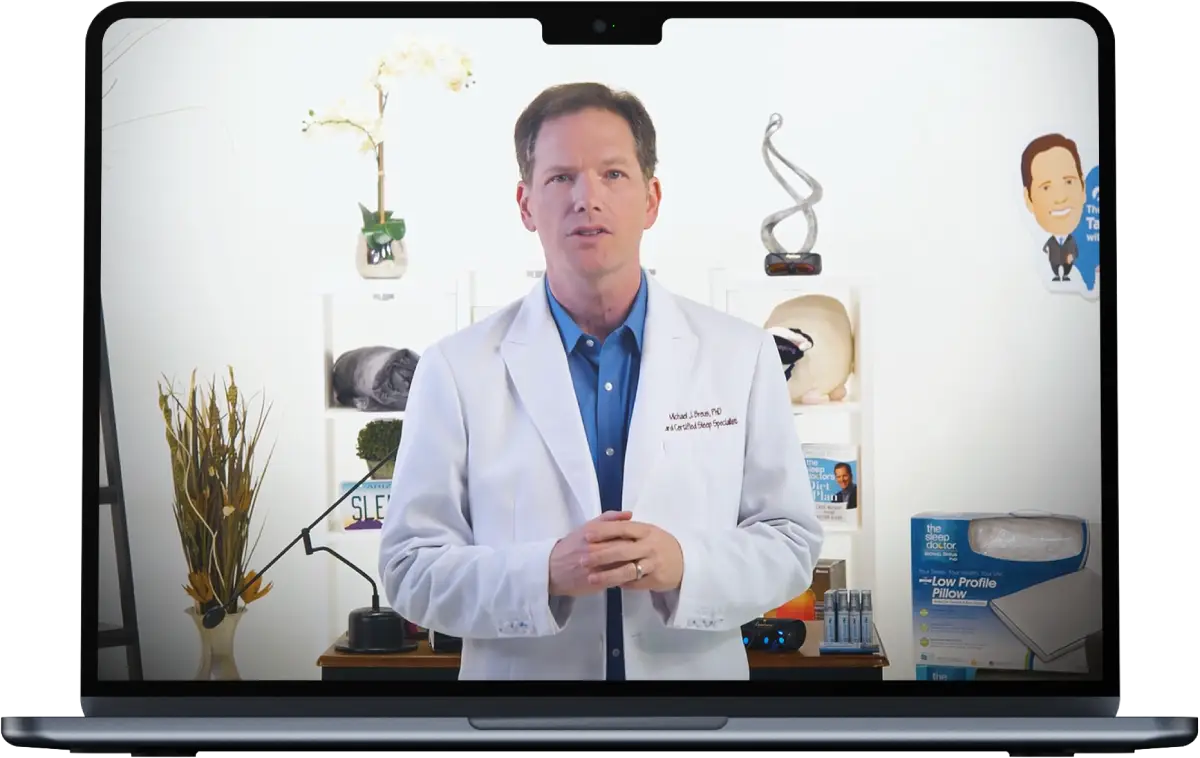
Over a dozen customizable intakes, quizzes, and specialized resources to tailor the course to your sleep genetic
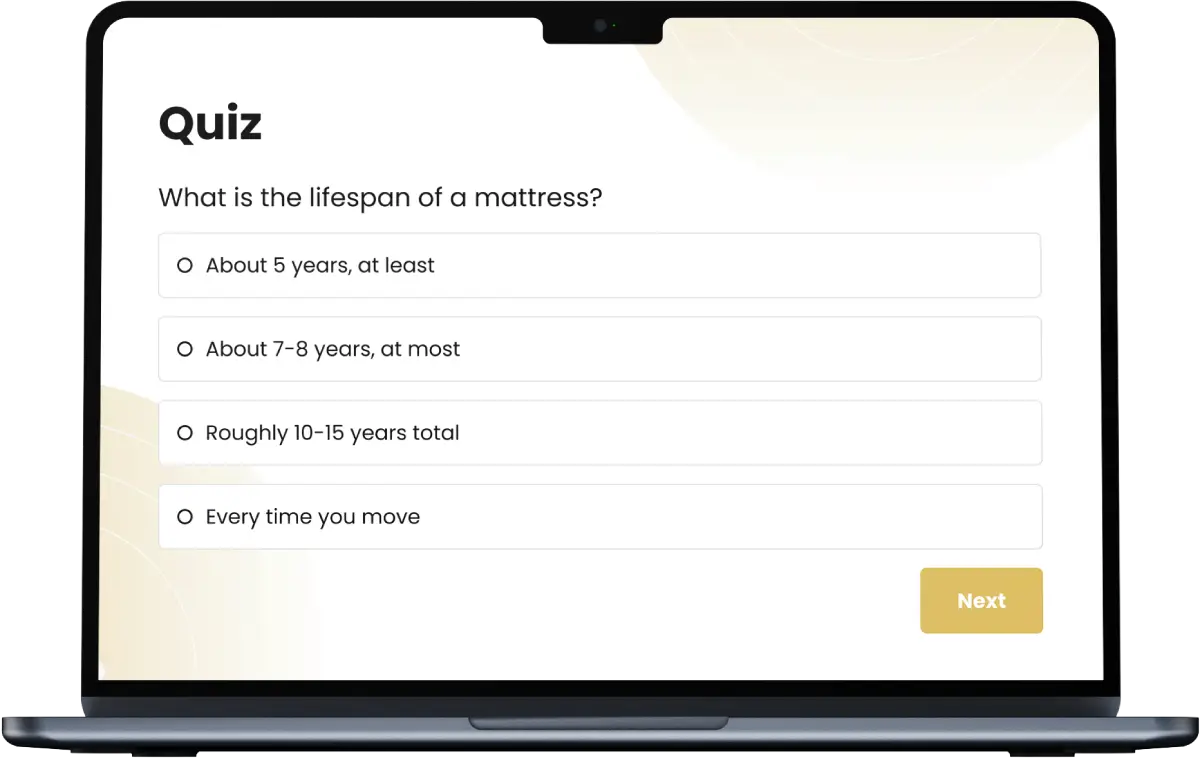
Bonus videos featuring Dr. Breus’ private presentations on sleep optimization
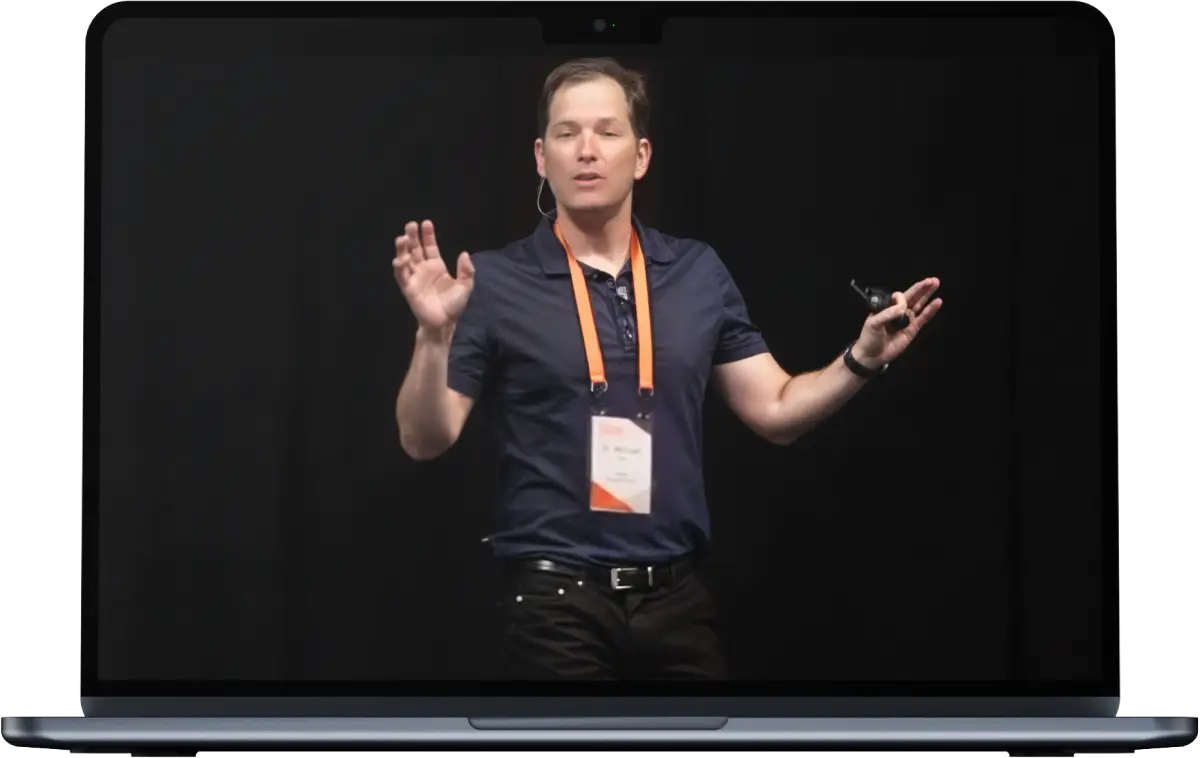
Multiple case studies featuring patients with sleep problems just like yours…solved!
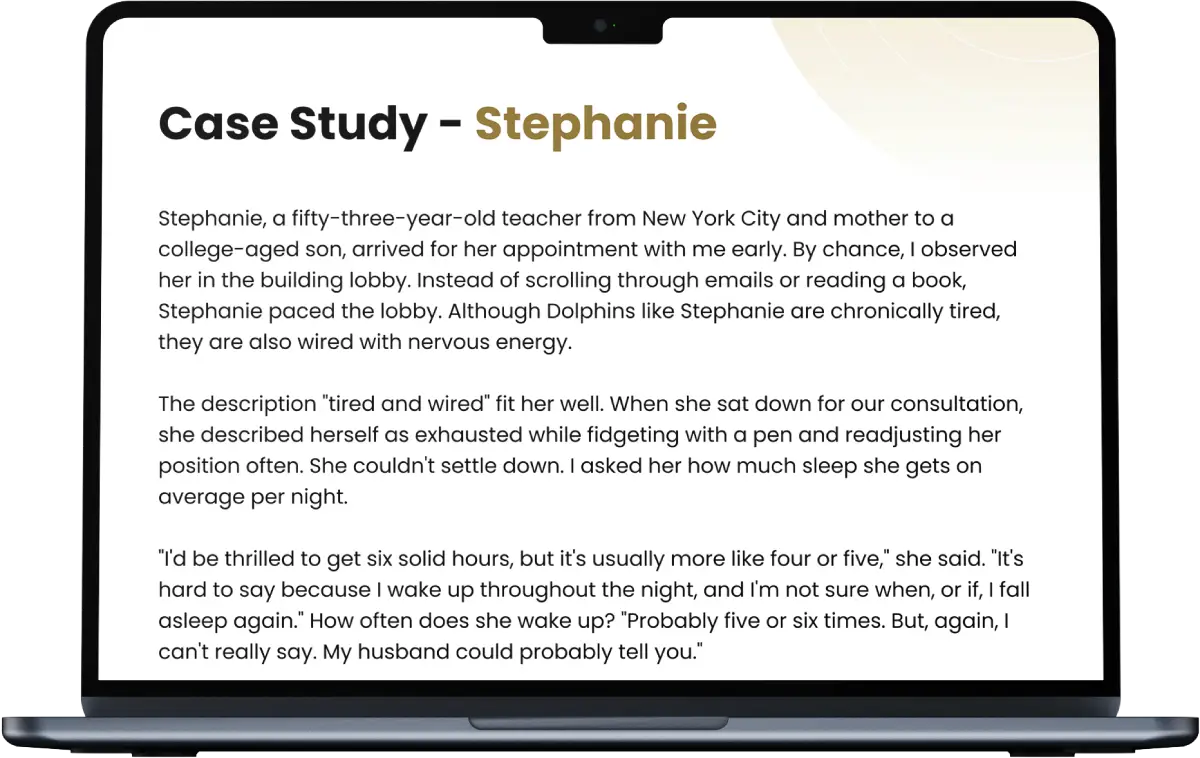
Rest-filled, peaceful nights with less worry about the risk of heart disease, cancer, and metabolic syndrome
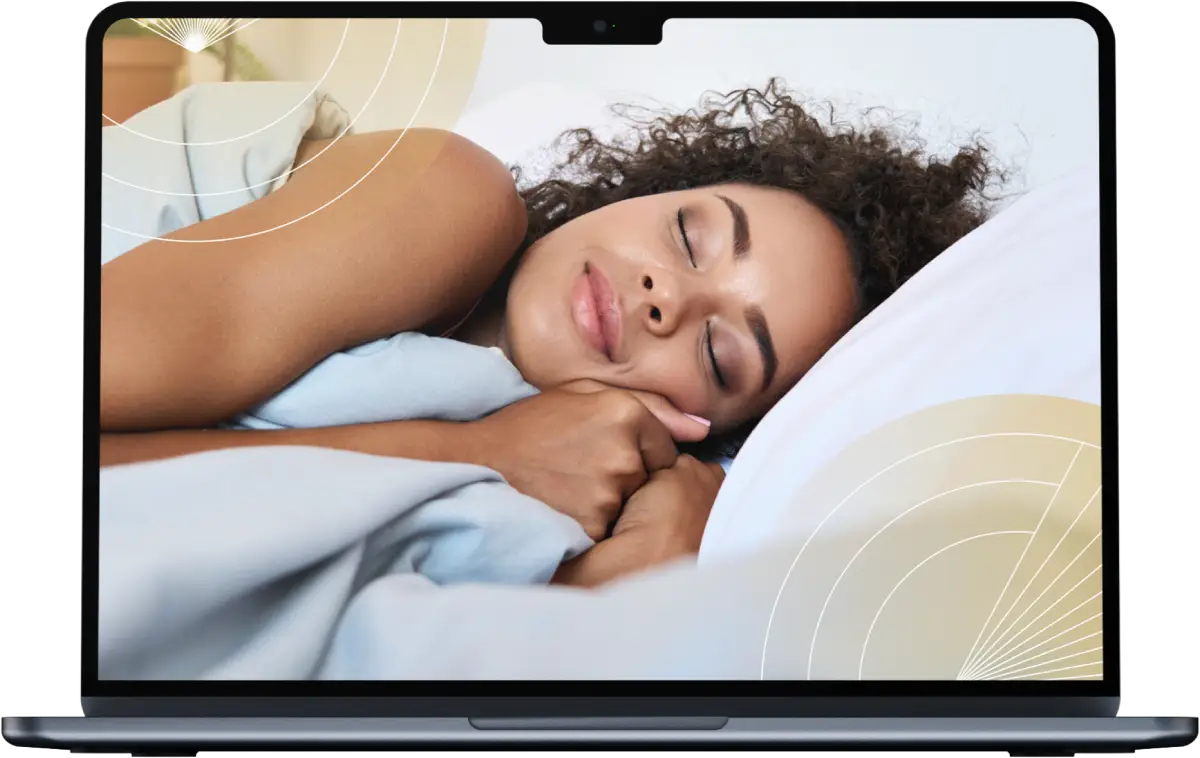

Your Investment $497 $297 (One-Time Payment)
- 11 modules of research-based sleep curriculum presented by Dr. Michael Breus, a veteran sleep expert with decades of clinical experience
VALUE $497
VALUE $497
- Over a dozen customizable intakes, quizzes, and specialized resources to tailor the course to your sleep genetic
VALUE $497
VALUE $497
- Bonus videos featuring Dr. Breus’ private presentations on sleep optimization
VALUE $306
VALUE $306
- Multiple case studies featuring patients with sleep problems just like yours…solved!
VALUE $200
VALUE $200
- Rest-filled, peaceful nights with less worry about the risk of heart disease, cancer, and metabolic syndrome
PRICELESS
PRICELESS
TOTAL RETAIL VALUE: $1,500
YOU GET IT ALL FOR JUST: $297
Normally $497 - Limited time For $297
Payment Plan Available If Needed
Limited Time $200 Discount
Sign up today for the best sleep (and health!) of your life:
For Only $497 $297

FAQs
The course contains 11 modules…how long will it take me to complete it?
The Ultimate Sleep Optimization Course is fully self-paced, so once you’ve accessed the material, you can complete it as quickly or methodically as you’d like!
The course consists of approximately 3 hours of video content, over a dozen customizable intakes, quizzes, and specialized resources, and 4.5 hours of reading, depending on how quickly you read. But please be aware that it will take you a few weeks to a few months to fully apply and gain benefit from the course material.
I’m seriously exhausted, and my sleep has been disturbed for years. Are you sure this course will help?
It’s important that you seek professional medical help for any long-term sleep problems that are chronically affecting your life and health.
The beauty of The Ultimate Sleep Optimization Course is that it will help you assess when it’s time to speak with your doctor, and if you are diagnosed with a sleep-related disease like insomnia or sleep apnea, it will provide you with powerful, individualized resources that compliment your doctor’s recommendations and lead to even better sleep.
Will I have to purchase additional sleep aids, tools, or supplements to complete the course?
While it’s not mandatory to acquire anything other than the fantastic information in this course for improved sleep, Dr. Breus does make resource recommendations that you can explore…or not!
Many resources depend wholly on your needs, such as mattresses, pillows, and sleep technology, such as apps that can help you avoid jetlag.
I’m afraid this course is just a repeat of the sleep information I’ve heard before…sleep in a cool room, avoid electronics an hour before bed, take a warm bath, etc. What’s so different about The Ultimate Sleep Optimization Course?
The bottom line: This course is leagues beyond other sleep recommendations, even ones from reliable sources.
Dr. Michael Breus, your instructor for The Ultimate Sleep Optimization Course, will personally lead you through modules covering everything from the myth of needing 8 hours of sleep per night (did you know too much sleep might be detrimental to your health?) to a professional guide that helps you and your doctor assess the effects of psychotropic and neurotropic medications on sleep.
I’ve read that this course makes individualized recommendations. How is this possible if you don’t know my personal health history?
This is a great question!
Thankfully, Dr. Breus has decades of clinical experience and has worked with thousands of patients in his functional sleep practice.
His experience led him to develop a systemized approach to sleep. This approach uses detailed intakes to allow you to identify your special sleep “chronotype,” i.e., the best pattern of sleeping (and waking, eating, and exercising!) for your specific needs.
And yes, his recommendations have you covered if you’re someone dealing with insomnia or another sleep-related diagnosis.
References
View All
- Shahar E, Whitney CW, Redline S, Lee ET, Newman AB, Nieto FJ, et al. Sleep-disordered breathing and cardiovascular disease: cross-sectional results of the Sleep Heart Health Study. Am J Respir Crit Care Med. 2001;163:19–25.
- Chung W-S, Lin H-H, Cheng N-C. The Incidence and Risk of Herpes Zoster in Patients With Sleep Disorders: A Population-Based Cohort Study. Medicine . 2016;95:e2195.
- Bubu OM, Brannick M, Mortimer J, Umasabor-Bubu O, Sebastião YV, Wen Y, et al. Sleep, Cognitive impairment, and Alzheimer’s disease: A Systematic Review and Meta-Analysis. Sleep [Internet]. 2017;40. Available from: http://dx.doi.org/10.1093/sleep/zsw032
- Ning D, Fang Y, Zhang W. Association of habitual sleep duration and its trajectory with the risk of cancer according to sex and body mass index in a population-based cohort. Cancer. 2023;129:3582–94.
- Chen Y, Tan F, Wei L, Li X, Lyu Z, Feng X, et al. Sleep duration and the risk of cancer: a systematic review and meta-analysis including dose-response relationship. BMC Cancer. 2018;18:1149.
- Anderson KN, Bradley AJ. Sleep disturbance in mental health problems and neurodegenerative disease. Nat Sci Sleep. 2013;5:61–75.
- Buxton OM, Pavlova M, Reid EW, Wang W, Simonson DC, Adler GK. Sleep restriction for 1 week reduces insulin sensitivity in healthy men. Diabetes. 2010;59:2126–33.
- Spiegel K, Knutson K, Leproult R, Tasali E, Van Cauter E. Sleep loss: a novel risk factor for insulin resistance and Type 2 diabetes. J Appl Physiol. 2005;99:2008–19.
- Neckelmann D, Mykletun A, Dahl AA. Chronic insomnia as a risk factor for developing anxiety and depression. Sleep. 2007;30:873–80.
- Finan PH, Goodin BR, Smith MT. The association of sleep and pain: an update and a path forward. J Pain. 2013;14:1539–52.
- Tang NKY, Wright KJ, Salkovskis PM. Prevalence and correlates of clinical insomnia co-occurring with chronic back pain. J Sleep Res. 2007;16:85–95.
- Reynolds AC, Coenen P, Lechat B, Straker L, Zabatiero J, Maddison KJ, et al. Insomnia and workplace productivity loss among young working adults: a prospective observational study of clinical sleep disorders in a community cohort. Med J Aust. 2023;219:107–12.
- Han S, Kim D-K, Jun S-E, Kim N. Association of sleep quality and mitochondrial DNA copy number in healthy middle-aged adults. Sleep Med. 2024;113:19–24.
- Rodrigues NR, Macedo GE, Martins IK, Gomes KK, de Carvalho NR, Posser T, et al. Short-term sleep deprivation with exposure to nocturnal light alters mitochondrial bioenergetics in Drosophila. Free Radic Biol Med. 2018;120:395–406.
- Aboufares El Alaoui A, Buhl E, Galizia S, Hodge JJL, de Vivo L, Bellesi M. Increased interaction between endoplasmic reticulum and mitochondria following sleep deprivation. BMC Biol. 2023;21:1.



